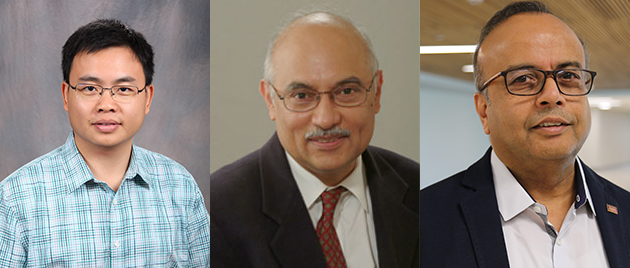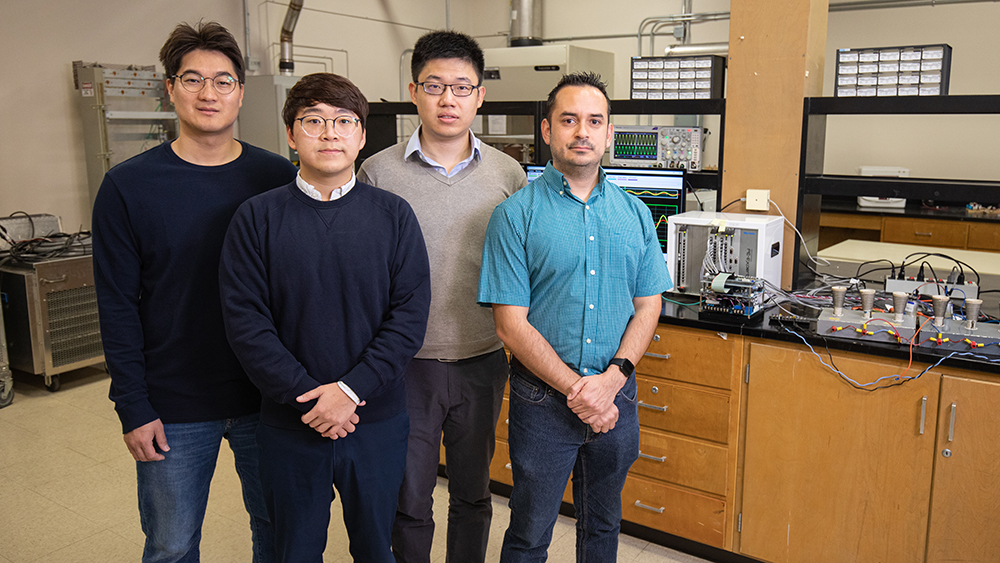Solar energy is one of the cleanest renewable energy resources available and it is now being utilized by the power grid. In the smart grid, the cyber and physical layers are heavily intertwined. The cyber layers, such as computers, networks, sensors and controls, and the physical layers, such as the power transmission lines and transformers, work together to generate power more efficiently. This collaboration between the different layers is extremely valuable, however the presence of cyber layers opens up the grid to potential threats.
Dr. Le Xie and his collaborators, Dr. P.R. Kumar and Dr. Prasad Enjeti, are addressing this by working on a research project to defend the grid from potential cyberattacks through a real-time check of the actions occurring on the grid.

There has been an increase of grid intelligence such as advanced sensors and photovoltaic (PV) panels that enhance the impact of solar power on the grid. PVs work by generating electric power through solar cells that convert energy from the sun into a flow of electrons. This is called the photovoltaic effect. The team is working to develop and demonstrate an active defense mechanism of the PV distribution system operation using a dynamic watermarking technique to monitor the cybersecurity. The technique involves injecting a probe signal onto the grid to authenticate grid actions. The team will test and validate the integrated communication, control and computational framework using an existing system.
“The goal of this project is to design and test a scalable, robust and online framework that provides much-needed secure monitoring of PV generation in the presence of potential cyberattacks in the distribution grid,” Xie said.
This project will directly fill the gap between academic research and real industry need because the research team has opportunities to test their proposed defense mechanism in a real-world testbed that has been configured based on a commercial distribution system.
The team has received a $4.4 million Department of Energy grant for this research project. The funded project is built upon the research on Automatic Generation Control, which has been published in IEEE Transactions on Power Systems.
Lie is professor, Kumar is Regents Professor, Distinguished Professor and College of Engineering Chair in Computer Engineering, and Enjeti is TI Professor III in Analog Engineering, all in the Department of Electrical and Computer Engineering at Texas A&M University. Doctoral students, Tong Huang, Jorge Ramos and Jaewon Kim, and post-doctoral associate Woo Hyun Ko are also involved in this project alongside their faculty mentors.
